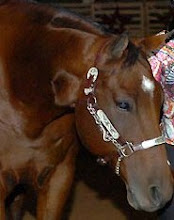Followers
Friday, August 21, 2009
Devotional
Today I was reading a Day by Day devotional from Open Doors by Yang Zhang. I wanted to share it because it is true but sometimes we don't have faith and let Him lead us. He knows what is good for us and what isn't.
Yang Zhang
To share the Gospel is the number one priority of the Body of Christ. New believers also have this responsibility. Not just "mature" believers. Every believer should get involved in spreading the Word of God. The more you plant - the more you reap. Without planting there is no harvest.
God wants to see a harvest of souls. He needs laborers to plough, plant and reap. We are these laborers. We are not only His people - we are also His servants. He can send a servant as He pleases.
The servant has no excuse: I am not gifted. I am not qualified. The master knows what he does.
When He appoints - He anoints
When He calls - He enables
When He sends - He goes along
When He asks you to speak - He will give you the words
Just obey and you will see God at work through you.
~Mac
Note: The Day by Day devotional comes in our e-mail. If you are interested in receiving their daily devotional click here.
Yang Zhang
To share the Gospel is the number one priority of the Body of Christ. New believers also have this responsibility. Not just "mature" believers. Every believer should get involved in spreading the Word of God. The more you plant - the more you reap. Without planting there is no harvest.
God wants to see a harvest of souls. He needs laborers to plough, plant and reap. We are these laborers. We are not only His people - we are also His servants. He can send a servant as He pleases.
The servant has no excuse: I am not gifted. I am not qualified. The master knows what he does.
When He appoints - He anoints
When He calls - He enables
When He sends - He goes along
When He asks you to speak - He will give you the words
Just obey and you will see God at work through you.
~Mac
Note: The Day by Day devotional comes in our e-mail. If you are interested in receiving their daily devotional click here.
God Caused Meaning

Humans in particular seek a "reason to exist" and for the most part find it difficult to accept that we are simply here to consume the earth's resources and die. However, God in the beginning created the heavens, the earth, and all living creatures—especially mankind—with special purposes in mind, which He explained in His Word.
Here is the essence of the naturalistic-evolutionary "story."
There is no God (or "god" is in the forces of nature, or in man himself). Nothing "supernatural" exists (except perhaps some "extra-terrestrial" race of super-intellects that have evolved in other parts of the universe. Since no evidence for the Bible's "God" exists, we can be certain that there is no such thing as a "plan for your life." And since there is so, there is no future, no "afterlife." Speculative Hollywood movies notwithstanding, and the many reported "out of the body experiences" to the contrary, no rational naturalist believes in any form of "eternal life." When you're dead, you're dead!
Such hopeless beliefs drive many into lives of debauchery and hedonism, and fill the couches of psychologists and psychiatrists all over the world. Teenage suicide is alarmingly high, and the therapitst themselves continue to manifest one of the highest suicide rates in civilized countries. Scandals abound among the leaders of world business, politics, and churches.
"If in this life only we have hope in Christ, we are of all men most miserable" (1 Corinthians 15:19).
There is no "good news" in the evolutionary theory.
There is, however, glorious wonder and life-changing power in the "everlasting gospel" (Revelation 14:6).
• power to transform (Romans 12:2)
• power to enrich (2 Corinthians 9:11)
• power to bring satisfying peace to all situations (Hebrews 13:20-21)
• power to change the mortal body into the immortal and everlasting being that will live eternally with the Creator (1 Corinthians 15:53-54).
Conventional wisdom tells us to "grab all the gusto you can; you only go around once in life!" We are told to "just be yourself" and that we should "let the good times roll." These and hundreds more clichés sprinkled throughout our culture misdirect our thinking and undermine real satisfaction, purpose, and meaning in life.
God designed humanity to enjoy the happiness of stability, the happiness of productivity, and the happiness of success (see Psalm 1). Jesus said, "I am come that they might have life, and that they might have it more abundantly" (John 10:10
The Incredible Hulk Theory of Life in Space by Brian Thomas, M.S.
The ongoing quest to find life in space has failed to yield any supportive evidence that life exists outside the earth. To prop up the idea of distant spontaneous life formation, some scientists are willing to settle for science fiction. One Serbian astrobiologist has taken cues from evolutionary paleontology—and maybe even from comic books.
Milan Ćircović of the Astronomical Observatory in Belgrade argued in a recent issue of Astrobiology Magazine that cosmic disasters might set up just the right conditions for life to evolve from chemicals. He speculated that habitable planets and the “stuff of life” that they supposedly nurture may get periodically reset by catastrophic events “like gamma ray bursts or nearby supernovae.”1 This reasoning is similar to evolutionary concepts of how life could have diversified on earth through mass extinctions.
In contrast to the classic Darwinian model—which predicts that fossils should show gradual change between transitional kinds—many fossils retain the same forms through several rock layers, and wholly different fossil kinds abruptly occur in other layers. This is generally interpreted to mean that evolution sometimes advances in sudden jumps. Somehow, natural disasters that cause massive death are assumed to kick macroevolution into overdrive.
Organisms do undergo rapid variations to fill empty niches formed after catastrophes. But they always remain within their own kinds. A dramatic transition between kinds has never been observed and, since the evolutionary “jump” is presumed to have occurred during an imagined time between the formation of certain rock layers, has left no record—only the conspicuous absence of transitioning life forms is noticeable.
In spite of the lack of evolutionary evidence, Ćircović proposed that cosmic disasters could similarly kick-start the seeds of life: “A gamma ray burst…would affect how quickly life develops or takes hold by causing changes in atmospheric chemistry on the planet.” Perhaps “interstellar electromagnetic radiation and cosmic rays” influence a planet’s biological environment and somehow help evolution along.1
These destructive processes are being invoked as possible agents for generating the right conditions for life to evolve—the same conditions that origin of life researchers have been unable to replicate through almost a century of intelligent, purposeful experiments.2
This gamma ray concept is reminiscent of comic book legend Stan Lee’s The Incredible Hulk, in which the hero, Dr. Bruce Banner, gets a mega dose of the otherwise deadly gamma radiation.3 The result: Banner can transform into the super-strong, super-sized green giant that has graced big and little screens in recent times.
To be clear, Ćircović is not proposing that life itself is improved or could be started by gamma ray bursts, but that the planetary conditions for supporting life could be. But is that really any less fanciful or more scientific? To say that the destructive forces that occur near galactic cores, where planets supposedly form, can foster life-sustaining environments is as much science fiction as Lee’s Hulk.
Supposedly, gamma ray bursts, cosmic rays,4 and supernovae “can be interpreted as resetting astrobiological clocks which tick on each habitable planet in the Milky Way.”1 There is not a shred of scientific evidence that astrobiological clocks exist anywhere in the universe, except in comic book-like hypotheses. For that matter, the only habitable planet yet discovered is earth, just as the biblical creation model predicts.
Milan Ćircović of the Astronomical Observatory in Belgrade argued in a recent issue of Astrobiology Magazine that cosmic disasters might set up just the right conditions for life to evolve from chemicals. He speculated that habitable planets and the “stuff of life” that they supposedly nurture may get periodically reset by catastrophic events “like gamma ray bursts or nearby supernovae.”1 This reasoning is similar to evolutionary concepts of how life could have diversified on earth through mass extinctions.
In contrast to the classic Darwinian model—which predicts that fossils should show gradual change between transitional kinds—many fossils retain the same forms through several rock layers, and wholly different fossil kinds abruptly occur in other layers. This is generally interpreted to mean that evolution sometimes advances in sudden jumps. Somehow, natural disasters that cause massive death are assumed to kick macroevolution into overdrive.
Organisms do undergo rapid variations to fill empty niches formed after catastrophes. But they always remain within their own kinds. A dramatic transition between kinds has never been observed and, since the evolutionary “jump” is presumed to have occurred during an imagined time between the formation of certain rock layers, has left no record—only the conspicuous absence of transitioning life forms is noticeable.
In spite of the lack of evolutionary evidence, Ćircović proposed that cosmic disasters could similarly kick-start the seeds of life: “A gamma ray burst…would affect how quickly life develops or takes hold by causing changes in atmospheric chemistry on the planet.” Perhaps “interstellar electromagnetic radiation and cosmic rays” influence a planet’s biological environment and somehow help evolution along.1
These destructive processes are being invoked as possible agents for generating the right conditions for life to evolve—the same conditions that origin of life researchers have been unable to replicate through almost a century of intelligent, purposeful experiments.2
This gamma ray concept is reminiscent of comic book legend Stan Lee’s The Incredible Hulk, in which the hero, Dr. Bruce Banner, gets a mega dose of the otherwise deadly gamma radiation.3 The result: Banner can transform into the super-strong, super-sized green giant that has graced big and little screens in recent times.
To be clear, Ćircović is not proposing that life itself is improved or could be started by gamma ray bursts, but that the planetary conditions for supporting life could be. But is that really any less fanciful or more scientific? To say that the destructive forces that occur near galactic cores, where planets supposedly form, can foster life-sustaining environments is as much science fiction as Lee’s Hulk.
Supposedly, gamma ray bursts, cosmic rays,4 and supernovae “can be interpreted as resetting astrobiological clocks which tick on each habitable planet in the Milky Way.”1 There is not a shred of scientific evidence that astrobiological clocks exist anywhere in the universe, except in comic book-like hypotheses. For that matter, the only habitable planet yet discovered is earth, just as the biblical creation model predicts.
Subscribe to:
Comments (Atom)










